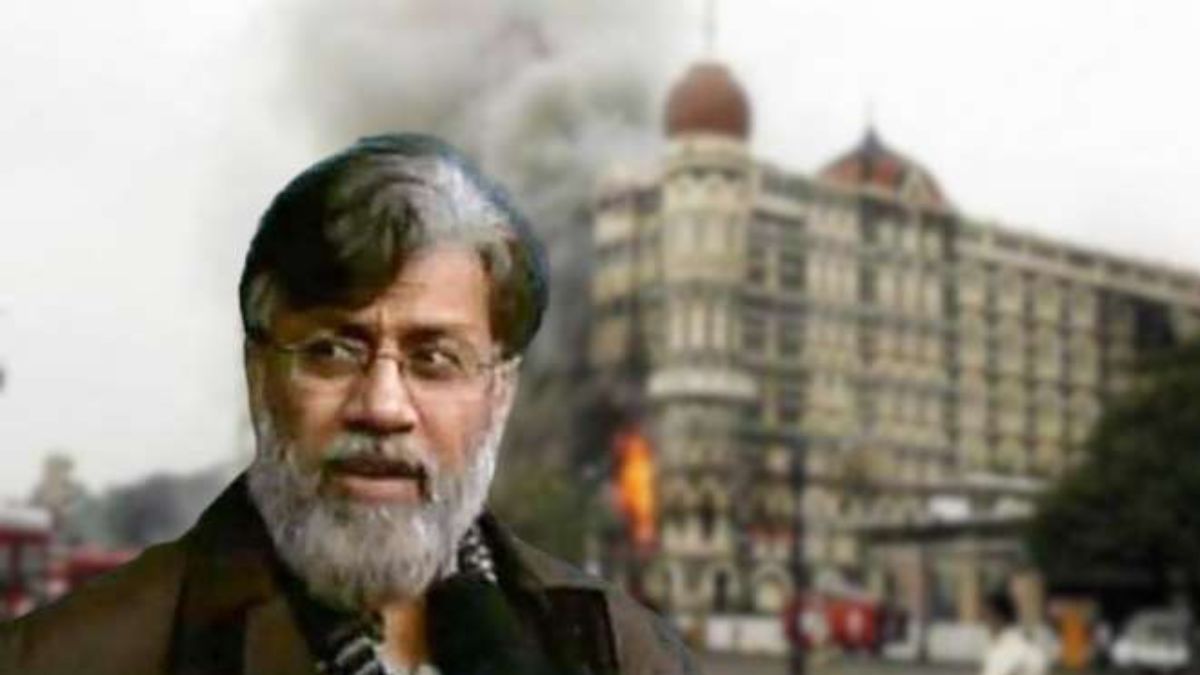


The United States Supreme Court has finally cleared the extradition of Tahawwur Rana, a Canadian citizen of Pakistani origin, to India for his involvement in the 2008 Mumbai terrorist attacks. This marks the end of Rana's numerous attempts to contest his case in various federal courts and avoids his possible prosecution in India. The US Supreme Court's decision is seen as a major victory for India in its quest for justice for the victims of the Mumbai terror attacks.
Background: Tahawwur Rana's Involvement in the 2008 Mumbai Terror Attacks
Tahawwur Rana, a Canadian citizen of Pakistani origin, was arrested in 2009 and charged with aiding and abetting the terrorist attacks that claimed the lives of 166 people in Mumbai, India, in 2008. Rana's alleged involvement stemmed from his connections to David Coleman Headley, a Pakistani-American who carried out surveillance and provided logistical support to the attackers.
Rana's extradition to India was initially approved by a federal judge in 2012, but he filed several appeals, arguing that he would not receive a fair trial in India and that his extradition would violate his human rights.
US Supreme Court's Extradition Decision
On January 14, 2023, the US Supreme Court rejected Rana's final appeal, clearing the way for his extradition to India. The Court's decision was based on the fact that India had provided sufficient assurances that Rana would receive a fair trial and would not be subject to torture or mistreatment.
The Supreme Court's decision marks a significant victory for India in its efforts to prosecute those responsible for the Mumbai terror attacks. It also reaffirms the importance of international cooperation in combating terrorism.
Top 5 FAQs Related to Tahawwur Rana's Extradition and the Mumbai Terror Attacks
1. Who was Tahawwur Rana and what was his role in the Mumbai terror attacks?
Tahawwur Rana was a Canadian citizen of Pakistani origin who allegedly provided logistical support to the attackers of the 2008 Mumbai terror attacks.
2. Why did the US Supreme Court reject Rana's appeal against extradition?
The US Supreme Court rejected Rana's appeal because India had provided sufficient assurances that he would receive a fair trial and would not be subject to torture or mistreatment.
3. What are the potential consequences of Rana's extradition to India?
Rana could face the death penalty if convicted of terrorism charges in India.
4. What is the significance of the US Supreme Court's decision?
The Supreme Court's decision is seen as a major victory for India in its quest for justice for the victims of the Mumbai terror attacks. It also reaffirms the importance of international cooperation in combating terrorism.
5. What other major developments have occurred in the case of the Mumbai terror attacks?

US President Donald Trump has expressed optimism about reaching a trade deal with China "pretty soon" after a meeting with Chinese President Xi Jinping in South Korea. In addition to announcing lower tariffs on Chinese imports, Trump also stated that the issue over US access to rare earths has been resolved. However, there has been no official response from Beijing and the final decision on the sale of Chinese-owned TikTok's US operations is still pending. Analysts see these developments as a breakthrough in the ongoing trade tensions between the two countries. Our correspondents provide insight on the discussions between the two leaders and speculate on why Xi may have felt confident walking into the meeting.

At the Asia-Pacific Economic Cooperation (APEC) Summit in South Korea, Chinese President Xi Jinping and US President Donald Trump met for their first in-person talks in several years. Despite past frictions, Xi called for closer cooperation between the two largest economies in the world, emphasizing the importance of being "partners and friends." Acknowledging Trump's peace efforts in the Middle East, Xi commended his contributions and praised him as a "tough negotiator." Trump also expressed optimism for a productive discussion on trade and global security.

In a historic event, Prime Minister Shri Narendra Modi addressed the Global Maritime Leaders Conclave and chaired the Global Maritime CEO Forum at India Maritime Week 2025 in Mumbai, welcoming participants from over 85 countries. With major shipping giants, startups, policymakers, and innovators in attendance, the summit showcased India's advancements in the maritime sector, such as the replacement of outdated colonial laws with modern ones and the recognition of large ships as infrastructure assets. Amidst global tensions, India stands as a symbol of strategic autonomy and inclusive growth, ready to take on a leading role in the world's rough seas.

Indian Prime Minister Narendra Modi has declared that the next generation of Goods and Services Tax (GST) reforms will begin on the first day of the Navratri festival. This major economic overhaul aims to streamline the current GST system and support businesses, especially small and medium enterprises. In other news, the National Human Rights Commission (NHRC) and Ministry of External Affairs (MEA) are collaborating to organize a six-day program in New Delhi to strengthen executive capacity for International Technical and Economic Cooperation (ITEC). Lastly, the upcoming BIRC 2025 conference will take place at the Bharat Mandapam in New Delhi.

Indian Prime Minister Narendra Modi is set to address the Global Maritime CEO Forum and Maritime Leaders Conclave at India Maritime Week (IMW) 2025 in Mumbai on Wednesday. The event will bring together global maritime leaders, investors, policymakers, and innovators to discuss sustainable growth and inclusive blue economy strategies, showcasing India's efforts towards becoming a leading maritime power. With the theme 'Uniting Oceans, One Maritime Vision' and participation from over 85 countries, the event will highlight India's commitment towards maritime sustainability and climate responsibility.

Cyclone Montha has intensified into a 'severe' cyclonic storm and is expected to make landfall in Andhra Pradesh this evening. The storm, which may cross the coast near the Kakinada area, is likely to bring heavy rainfall and strong winds to several districts in Andhra Pradesh. Meanwhile, the Odisha government has evacuated people from vulnerable areas and issued warnings for heavy rainfall in several districts. Commuters in the Waltair region have also been affected as train services have been cancelled, diverted, or terminated.

The India Meteorological Department has warned of an impending severe cyclonic storm, named 'Montha', that is expected to make landfall near Kakinada on the Andhra Pradesh coast. The storm has already caused heavy rain and strong winds along India's east coast and will continue to do so until Tuesday. States like Tamil Nadu, Odisha, Andhra Pradesh, and more have been placed on high alert and the government has declared holidays for schools in several districts as a precautionary measure. The Union Minister and BJP Chief has also directed party units to assist in rescue and relief operations.

While conducting routine operations on Sunday, two separate crashes involving US Navy aircraft occurred over the South China Sea, coinciding with President Trump's visit to Asia. The first involved a MH-60R Sea Hawk helicopter from the USS Nimitz, and the second involved a Boeing F/A-18F Super Hornet fighter jet. Luckily, all personnel involved were rescued without any injuries reported.

In a strong statement, President Asif Ali Zardari reiterates Pakistan's unwavering stance on the Kashmir dispute, calling India's claims on the territory illegal and in violation of international law and UN resolutions. He criticizes the recent remarks by Afghan leadership, highlighting the documented fact of terrorist attacks targeting Pakistani civilians and urging Kabul to take action against these militant elements. Zardari stresses that the fight against terrorism is a collective responsibility and Pakistan will not compromise its sovereignty or national security.

A tragic bus accident in Andhra Pradesh, India, which claimed the lives of 19 passengers, has been linked to a drunken biker, B Shiva Shankar. According to forensic reports and police investigations, the biker's reckless and intoxicated driving caused the initial crash that led to the bus fire. The bus was also carrying a consignment of smartphones and electric batteries, intensifying the fire and explosion. The second bus driver, who was reportedly sober, is cooperating with the investigation as police continue to file cases based on evidence and eyewitness accounts.